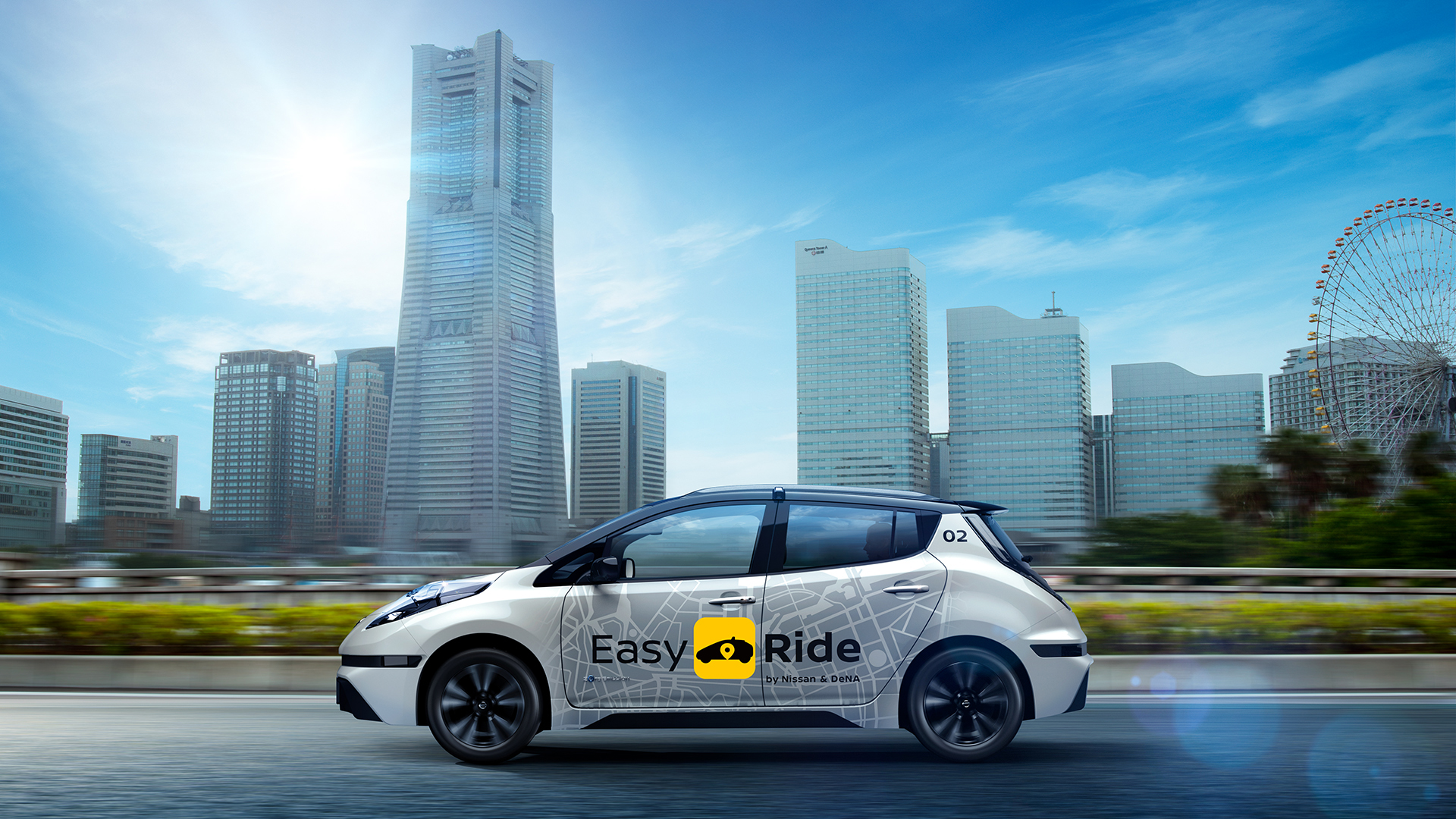

Nissan has been testing self-driving cars for several years, albeit without as much fanfare and public attention as some of its competitors. The Japanese automaker is set to bring its autonomous-driving program back into the spotlight with a public test in its home country.
Nissan and tech company DeNA (pronounced “D-N-A”) will team up on an autonomous ride-sharing pilot program in Minatomirai district of the Japanese city of Yokohama. Similar to public trials by Uber and Waymo, members of the public will get to ride in cars equipped with self-driving tech. But the program will only run between March 5 and 18, 2018.
The program, dubbed Easy Ride, will use modified Nissan Leaf electric cars. Nissan and DeNA are currently signing up volunteers through a dedicated website, and will continue to do so through January 15. The two companies expect autonomous ride sharing to supplement existing transportation services, allowing easier access to destinations that aren’t currently well served by other methods.
Nissan is well behind its competitors when it comes to autonomous ride sharing. Waymo and Uber self-driving cars are already picking up passengers in certain U.S. cities, and some of Waymo’s vehicles don’t even have human drivers onboard. Ford has said it will launch a production self-driving car in 2021 for third-party ride-sharing services, and General Motors wants to launch its own autonomous ride-sharing service in 2019.
Many companies are leaning toward ride sharing over individual car ownership as the path for deploying autonomous vehicles because of the potential profits. Self-driving cars can stay on the road for longer periods of time, and operating a ride-sharing service gives automakers a way to continuously earn money off the cars they build throughout the vehicles’ lifespan. Ride sharing also allows companies to control how self-driving cars are used, an important consideration in the technology’s early days.
However, Nissan’s self-driving car efforts still seem more focused on conventional sales of cars to individual customers. The company recently launched its ProPilot Assist driver aid in the U.S., which essentially combines automated steering and adaptive cruise control during highway driving. Nissan’s plan is to add more capabilities until it reaches full autonomy.
That rollout will occur in the form of technology features added to cars sold in showrooms, meaning Nissan customers could be the most likely to purchase their own self-driving cars, rather than just summoning them through ride-sharing services. That could spread the technology to areas where ride-sharing services don’t operate, but also introduces more variables that could make it a riskier approach.